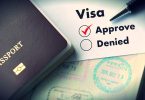Would you like to have access to the knowledge about how to become a Pharmacist In Canada? Get ready! This guide would give you detailed information about How To Become A Clinical Pharmacist In Canada and other related topics.
Scope of Pharmacist in Canada
In Canada, graduates of pharmacy operate right at the heart of the human health industry, taking on various positions in the creation and production of new therapies, administering medications and services, and consulting on the variety of medicinal options available in the health industry.
A career in pharmacy can be extremely satisfying yet very challenging as it is a people-oriented occupation. There’s the common misconception that pharmacists spend their days in retails drug stores offering advice to clients, counting and selling pills and capsules.
In comparison, pharmacy is much more vast and if you are planning to take up a career in this high-paying field, don’t forget that it is a crucial part of the healthcare profession. So, your greatest recompense should be the thought that you have helped people who are in pain or whose life could’ve been in danger because of inappropriate use of medication. If you are prepared to accept all these problems and many other similarly difficult conditions, you have to pass the following steps:
Step 1 Obtaining a University Degree
Graduate from a Canadian university, by obtaining a Bachelor’s degree in pharmacy. 10 universities across the country offer degrees in pharmacy, each province has one while Ontario and Quebec each have two. All the universities offer a standard four-year Pharmacy program.
Step 2 Finding Apprenticeship or Internship
Get practical experience through apprenticeship or internship opportunities. You’d require practical training of several hundred hours under a licensed pharmacist in addition to your degree. As professionals in the field of pharmacy are licensed at the provincial level, the exact requirements depend solely on what province you will work in. However, this is a great opportunity to develop valuable skills related to your chosen career as a pharmacist.
Step 3 Finding about the Legal Aspects
Being part of the healthcare industry and working with hazardous substances that are under control, you need to satisfy a number of legal requirements. So, you need to be crystal clear about the legal aspects of pharmacy. In most universities, this is included in the undergraduate programs offered. In British Columbia for instance, there is an independent jurisprudence exam that you are required to take.
Step 4 Sitting Language Tests
Fluency in English is a prerequisite to becoming a licensed pharmacist in some of the provinces in Canada. In Quebec, fluency in French is needed. Although your degree from any Canadian university is undoubtedly evidence of fluency in French or English, there are language tests and fluency standards that you should be able to surpass.
Step 5 Passing the National Qualifying Exam
As your next step, you need to take the Canadian national qualifying exam through the Pharmacy Examining Board (PEBC). This test is given by the national certification body for all pharmacists in Canada and it consists of two sections. A pharmacy degree is a compulsory requirement before you take the examination. However, if you are a senior graduating, you are eligible to apply, but you have to obtain your degree prior to the exam date. The exams are scheduled twice a year.
Step 6 Becoming Pharmacist for Foreign Nationals
If you are a qualified pharmacist but not a Canadian citizen or resident, you’d have to still meet exactly the same requirements listed above. So, you can help yourself with the International Pharmacy Graduate Program taught at the University of Toronto or the Canadian Pharmacy Practice Program at the University of British Columbia.
Career Definition for a Clinical Pharmacist
Clinical pharmacists functions in hospitals, pharmacies and clinics where they recommend medication and necessary over-the-counter drugs after assessing the unique needs of the patients. Clinical pharmacists also observe the patients’ recovery and ensure the medication is functioning as expected, making changes when necessary.
The clinical pharmacy positions necessitate a Pharm.D degree in addition to the 4-year bachelor’s degree. It usually takes about two or four years to complete a Pharm.D. program. All 10 provinces have laws stating that pharmacists be licensed in addition to the required education. Additionally, clinical pharmacists may be required to complete a residency. The criteria for licensure vary by province but usually include some type of written test that must be repeated every few years.
International Pharmacy Graduates (IPGs)
Been enrolled in NAPRA’s Pharmacists’ Gateway Canada is a compulsory first step in Canada towards licensure for international pharmacy graduates (IPGs) in all provinces except Québec.
Pharmacist Gateway Canada (Gateway) supplies a number of tools for IPGs, including a public website where IPGs can locate everything needed to better comprehend and navigate the Canadian licensure process. The Gateway provides access to clear and state of the art information on the licensure essentials in every province and territory across Canada and is private national document storage only accessible to the candidate, the PEBC, and the pharmacy regulatory authority.
For more information about programs that enables IPGs successfully complete the licensing requirements in Canada to practice pharmacy, several programs are available:
- The International Pharmacy Graduate Program — Leslie Dan Faculty of Pharmacy at the University of Toronto in Toronto, ON
- The International Pharmacy Bridging Program — Bredin Institute in Calgary, AB and Edmonton, AB
- The Canadian Pharmacy Practice Programme — Faculty of Pharmaceutical Sciences at the University of British Columbia in Vancouver, BC
SEE ALSO:
- Highest Paying Biology Jobs in Canada to Apply for Now
- How to migrate to Canada: 5 ways to get Canadian Visa Easily
- How to Apply for High Paying Nursing Jobs in Canada for Foreigners
- How to get a Work abroad Visa and Permit in Canada
- Study in Canada: Student Visa Process and Requirements
- FULL-TIME: housekeeping attendant vacancy In Canada, Salary – $1,500|APPLY NOW






